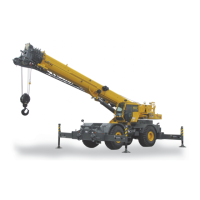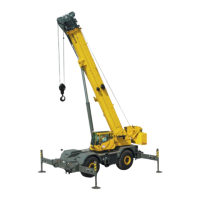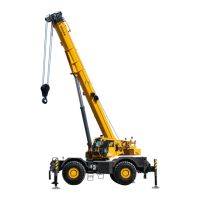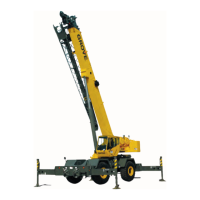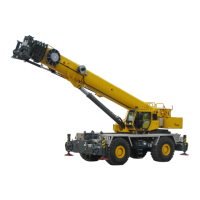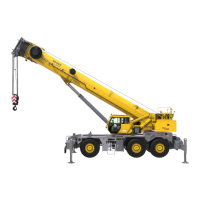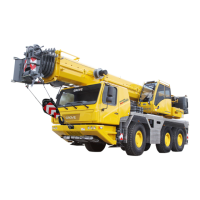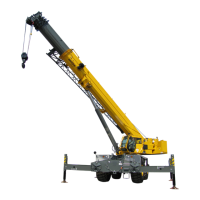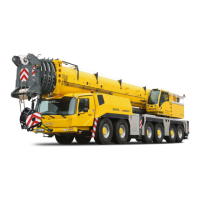Do you have a question about the Manitowoc Grove YB5520 and is the answer not in the manual?
Provides an overview of the operator's manual, directional references, serial number plate, delivery report, and customer support.
Introduces safety information, general crane design, and nomenclature for crane operation.
Details safety messages, alert symbols, signal words, and warning signs for hazard communication.
Outlines operator information, qualifications, and responsibilities for safe crane operation.
Describes operational aids like RCL systems, anti-two-block devices, and working area limiters.
Covers crane stability, structural strength, and the importance of using load charts.
Addresses work site inspection and the impact of wind forces on crane operations.
Provides safety guidelines for lifting operations, including counterweight and multiple crane lifts.
Details electrocution hazards, set-up safety, and electrical contact precautions.
Covers safety for personnel handling and environmental protection measures.
Outlines maintenance safety, service procedures, and general safety practices.
Provides safety guidelines for transporting the crane and during travel operations.
Details work practices and personal safety considerations for crane operators.
Covers procedures for safely shutting down and parking the crane.
Discusses temperature effects on components and overload inspection procedures.
Details inspections for boom, superstructure, and carrier components.
Provides an overview of all controls, switches, and gauges within the operator's cab.
Details the left and right dash controls, including RCL override and other switches.
Explains the function and meaning of various indicators and gauges on the instrument panel.
Covers crane level indicators, engine warning lights, and RCL system information.
Describes the operation of outrigger controls and steering selection modes.
Details procedures for starting the engine, traveling, and operating crane functions.
Provides steps for normal and cold climate engine starting and warm-up procedures.
Covers procedures for traveling with the crane and shifting gears safely.
Explains the operation of boom swing, telescope, lift, and hoist controls.
Details safe practices for handling loads, moving loads, and general lifting procedures.
Provides procedures and safety precautions for lifting personnel.
Covers procedures for shutting down the crane and disconnecting the battery.
Explains how to use the capacity chart for safe lifting operations.
Highlights key observations and factors to consider when using the crane's capacity chart.
Covers lifting with boom extensions and safe pick and carry ranges.
Details pivoting boom head positions and hoist block procedures.
Provides instructions for attaching and stowing the boom extension.
Covers installing and removing the down haul weight and installing hoist cable.
Explains wire rope wedge socket assembly and reeving procedures.
Covers safety lists, lubricant recommendations, and maintenance records.
Details special maintenance tasks and preventive maintenance schedules.
Specific maintenance tasks required after the first 50 hours of crane operation.
Outlines daily inspections, component checks, and scheduled maintenance items.
Procedures for daily walk-around inspections of safety devices and controls.
Details checks for air cleaner, wire rope, sheaves, boom pads, and brakes.
Instructions for checking and cleaning the air cleaner restriction indicator and dust cup.
Covers inspection of wire rope condition, sheaves, and grease fittings.
Procedures for lubricating wear pads on boom sections.
Guidance for maintenance tasks required at 100 hours or more of operation.
Provides guidelines for cleaning the crane and protecting it from corrosion.
Details procedures for inspecting and repairing minor damage and scratches.
States that all adjustments must be performed by a qualified mechanic.
Lists recommended lubricants and their capacities for various crane components.
Provides specifications for engine oil viscosity and diesel fuel requirements.
Details general specifications for the engine, boom, electrical system, and hydraulic system.
Specifies tire size and pressure, crane weight, and travel speeds.
Provides operating dimensions, including turning radii and aisle space requirements.
| Brand | Manitowoc |
|---|---|
| Model | Grove YB5520 |
| Category | Construction Equipment |
| Language | English |


